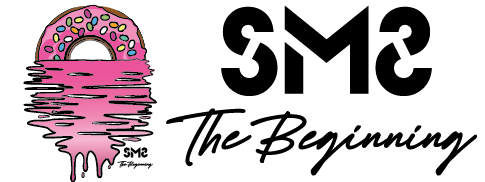In 2025, the notion that a company’s greatest asset is its people remains unequivocally true. However, the strategies required to effectively manage, nurture, and leverage this human capital have evolved dramatically. The modern workforce is more diverse, dynamic, and distributed than ever before, influenced by shifting expectations around flexibility, purpose, and professional development. From attracting top-tier talent in a highly competitive market to fostering engagement and ensuring continuous growth, human capital management has become a complex strategic imperative. This intricate landscape demands specialized insights, and it is precisely here that business management consulting offers profound and transformative value.
Many organizations, while excelling in their core operations, often find their internal HR departments stretched thin, lacking the bandwidth or specialized expertise to address the nuances of modern talent acquisition, performance optimization, or cultural development for a globalized workforce. This is why engaging a seasoned consultant is a strategic move. These professionals bring an objective perspective, cross-industry best practices, and deep expertise in designing human capital strategies that are not only compliant but also highly effective. They help businesses build robust frameworks for talent acquisition, retention, and development, ensuring that every aspect of the workforce strategy aligns seamlessly with the company’s overarching strategic objectives. Their role extends beyond mere advice; they implement solutions that empower employees and enhance overall organizational performance.
The profound shifts in work models, particularly the widespread adoption of remote work and the increasing prevalence of digital nomads, have further complicated human capital strategies. These trends offer unprecedented opportunities to tap into a global talent pool but also introduce challenges related to virtual team management, engagement across different time zones, and compliance with diverse labor laws. Consultants in 2025 are therefore playing an increasingly crucial role in advising companies on how to navigate these complexities. They help design flexible work policies, implement cutting-edge collaboration technologies, and cultivate inclusive cultures that thrive across geographical boundaries. This holistic approach to human capital optimization ensures that businesses can attract, develop, and retain the talent they need to achieve sustainable success in a dynamic, globalized environment.
Understanding Modern Human Capital Challenges
In 2025, effective human capital management goes beyond traditional HR functions, addressing complex interdependencies.
Key Challenges in Workforce Management
- Talent Scarcity: A highly competitive market for skilled professionals, making attraction and retention difficult.
- Evolving Employee Expectations: Demand for flexibility, work-life balance, purpose-driven work, and continuous learning.
- Distributed Workforce Management: Challenges in engaging, communicating with, and measuring the productivity of remote and hybrid teams.
- Diversity, Equity, and Inclusion (DEI): The need to build genuinely inclusive cultures that leverage diverse perspectives.
- Skill Gaps: Rapid technological advancements creating new skill requirements that the current workforce may lack.
- Employee Burnout & Wellbeing: Ensuring employee mental and physical health in demanding work environments.
- Compliance Complexity: Navigating varied labor laws, tax regulations, and benefits requirements across different geographies for a global workforce.
Why Internal Teams May Struggle
- Limited Bandwidth: HR departments often focus on day-to-day operations, leaving little time for strategic initiatives.
- Lack of Specialized Expertise: Internal teams might not have deep knowledge in areas like global compensation benchmarking, advanced HR analytics, or remote workforce policy design.
- Internal Biases: Difficulty in objectively assessing existing talent strategies or cultural issues.
- Resistance to Change: Internal stakeholders may be hesitant to adopt new human capital approaches.
The Consultant’s Strategic Approach to Human Capital Optimization
A specialized consultant provides the objective analysis, strategic foresight, and actionable frameworks needed to build a high-performing, adaptable workforce.
1. Talent Acquisition and Onboarding Optimization
A primary focus for business management consulting in human capital is refining how companies attract and integrate new talent. A skilled consultant will:
- Employer Branding: Develop strategies to enhance the company’s reputation as an attractive employer, aligning with modern talent values.
- Recruitment Process Re-engineering: Streamline hiring workflows, leveraging technology (e.g., AI in applicant screening, virtual interviews) to reduce time-to-hire and improve candidate quality.
- Global Sourcing Strategies: Advise on tapping into diverse talent pools beyond local markets, including strategies for attracting and vetting international candidates, particularly those embracing the digital nomads lifestyle.
- Effective Onboarding Programs: Design comprehensive onboarding experiences that integrate new hires seamlessly into the company culture and work processes, crucial for both in-person and remote teams. This ensures new employees are productive and engaged from day one.
2. Performance Management and Development
Optimizing human capital requires robust systems for evaluating and developing employee potential:
- Performance Framework Design: Develop and implement modern performance management systems that go beyond annual reviews, focusing on continuous feedback, goal alignment, and professional development.
- Skill Gap Analysis: Identify current and future skill requirements, then design targeted training and development programs (e.g., upskilling for new technologies, leadership training).
- Succession Planning: Establish clear pathways for employee growth and leadership development, ensuring a pipeline of talent for critical roles.
- Compensation & Benefits Review: Advise on competitive compensation structures and benefits packages that attract and retain top talent, benchmarking against industry standards and global expectations.
3. Employee Engagement and Culture Building
A thriving workforce is an engaged workforce. Consultants help cultivate positive work environments:
- Engagement Surveys & Analysis: Conduct surveys and qualitative assessments to understand employee sentiment, identify drivers of engagement, and pinpoint areas for improvement.
- Culture Transformation Initiatives: Design and implement programs aimed at fostering a positive, inclusive, and values-driven company culture, whether physical or virtual.
- Well-being Programs: Advise on initiatives that support employee mental, physical, and financial well-being, recognizing their impact on productivity and retention.
- Recognition & Reward Systems: Develop effective programs that acknowledge and reward employee contributions, fostering a sense of value and motivation.
4. Workforce Planning for Modern Realities
The shift towards flexible work models is a profound change affecting human capital strategies. A business consultant with expertise in modern workforce strategies helps organizations adapt:
- Flexible Work Policy Design: Create comprehensive policies for remote, hybrid, and flexible work arrangements, ensuring clarity, fairness, and compliance.
- Virtual Collaboration & Communication: Advise on the best digital tools and communication protocols for seamless interaction and project management across geographically dispersed teams, critical for supporting a workforce that includes digital nomads.
- International HR Compliance: Guide companies through the complexities of international labor laws, tax implications, and social security requirements when hiring and managing employees or independent contractors across borders. This mitigates legal and financial risks.
- Building Cohesive Remote Cultures: Develop strategies to foster a strong sense of community, belonging, and shared purpose among remote and hybrid teams, ensuring that flexibility does not dilute company culture.
Ensuring Sustainable Human Capital Excellence
Effective human capital consulting establishes frameworks for ongoing optimization and adaptability.
1. HR Analytics and Data-Driven Decisions
- Dashboard Development: Creating HR dashboards that provide real-time insights into key metrics like turnover rates, time-to-hire, employee engagement scores, and talent pipeline health.
- Predictive Analytics: Leveraging data to forecast future talent needs, identify retention risks, and optimize recruitment spend.
- ROI of HR Initiatives: Measuring the tangible return on investment for various human capital programs.
2. Change Management and Communication
- Stakeholder Buy-in: Developing strategies to secure support from leadership and employees for new HR initiatives.
- Transparent Communication: Ensuring clear and consistent communication about changes in policies, benefits, or organizational structure.
- Feedback Mechanisms: Implementing continuous feedback loops to gather employee input and adapt strategies as needed.
3. Adapting to Future Trends
- Continuous Learning: Staying abreast of emerging HR technologies, workforce trends (e.g., AI in HR, personalized learning), and regulatory changes.
- Agile HR: Adopting agile methodologies within the HR function to respond quickly to evolving business needs and market dynamics.
- Proactive Planning: Anticipating future talent needs and developing strategies to address them before they become critical challenges.
Final Thoughts: Investing in Your People, Securing Your Future
In 2025, the competitive edge of any business increasingly hinges on its ability to attract, develop, and retain exceptional talent. Navigating the complexities of a dynamic workforce, especially one that embraces flexibility and global reach, requires more than just reactive HR practices; it demands strategic foresight and a proactive approach. The specialized guidance of business management consulting is invaluable in this endeavor. By partnering with an expert consultant, businesses can systematically optimize their human capital strategies, building robust frameworks for talent acquisition, performance management, and cultural development. This partnership ensures that your organization not only meets the demands of today’s workforce but is also well-equipped to thrive with the talent of tomorrow, securing long-term success in an ever-evolving global landscape.


